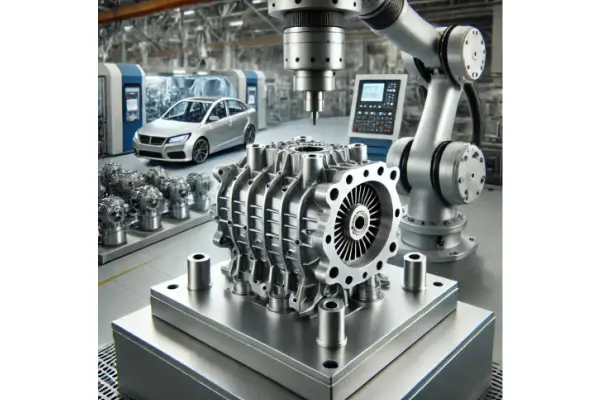
What Is Electric Vehicle Motor Housing?
Electric vehicle motor housing refers to the protective casing that surrounds the motor of an EV. This housing plays a pivotal role in protecting the motor from external damage, as well as managing heat and enhancing overall vehicle safety. Simply put, without this housing, the electric motor would be highly vulnerable to environmental conditions like moisture, dirt, and even physical impacts.
The motor housing from China die cast aluminum housing manufacturer is designed to ensure that the internal components of the motor remain undamaged, contributing directly to the vehicle’s longevity and efficiency.
Electric Motor Housing Material
Selecting the right material for motor housing is crucial to its performance. The materials must be strong enough to protect the motor while also being lightweight to improve vehicle efficiency.
1. Lightweight Metals
Aluminum and magnesium are widely used for their lightweight properties and durability. These materials are strong yet easy to shape, making them perfect for motor housing.
2. Advanced Composites
Some manufacturers are exploring the use of advanced composites, which combine materials like carbon fiber or glass fiber with resin. These offer high strength-to-weight ratios but can be costly.
Why Aluminum Is Popular for EV Motor Housing?
Aluminum stands out for several reasons in aluminum electric motor housing, making it a top choice for motor housing:
Lightweight: Reducing the weight of an EV is critical for improving its range, and aluminum is far lighter than steel.
Corrosion Resistant: Aluminum resists corrosion better than most metals, which is essential in extending the life of the motor housing.
Cost-Effective: It's relatively affordable compared to advanced composites, making it a practical choice for mass production.

 NO.38 Duanzhou 3rd Road, Zhaoqing(526060), Guangdong, China
NO.38 Duanzhou 3rd Road, Zhaoqing(526060), Guangdong, China




